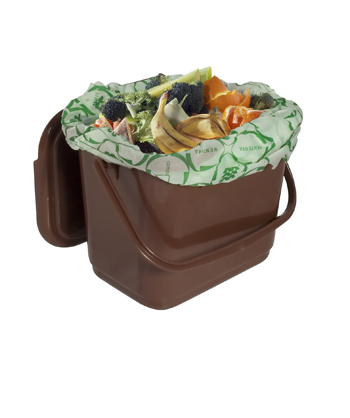Ireland commits to separate food waste

Ireland’s Minister for the Environment, Community and Local Government, Phil Hogan, last week (7 March) signed new Household Food Waste Regulations, which make throwing food waste into the residual waste stream illegal.
The European Union (Household Food Waste and Bio-Waste) Regulations 2013 (which are for Ireland only) were brought in to ‘promote the segregation and recovery of household food waste’ and ‘increase the amount of food waste that is recovered through the production of energy, compost and digestate’, to ensure that food waste is diverted from landfill.
According to Ireland’s Environmental Protection Agency (EPA), organics comprise about 23 per cent (by weight) of the gross household bin waste stream, and a total of 860,000 tonnes of ‘biodegradable waste’ was sent to landfill in 2010.
It is now hoped that the regulations will fulfil the European Commission’s Landfill Directive by ‘directing source-segregated household food waste to composting and to other forms of treatment’ and fulfil the requirements of the revised Waste Framework Directive. Under the Landfill Directive, member states can only send up to 35 per cent of biodegradable waste (calculated on the basis of the total amount of biowaste produced in 1995) to landfill by 16 July 2016.
The new regulations also form part of the implementation of measures set out in the national waste management policy: ‘A Resource Opportunity – Waste Management Policy in Ireland’, published in July 2012.
Food waste to be collected 'at least once a fortnight’
Under the new law, waste collectors will be legally obliged to introduce a separate collection service for household waste ‘at least once a fortnight’, and householders must keep food waste ‘separate from non-biodegradable materials, other waste and contaminants’.
Alternatively, householders may choose instead to compost the food waste at home, or ‘bring the food waste to authorised treatment centres, for recovery in an environmentally acceptable way, such as civic amenity sites, anaerobic digestion sites or for incineration’.
Macerating waste and disposing of it in drains or sewers or throwing it in residual waste bins (where a separate food waste collection service is in place) will not be permitted under the new law.
Anyone found guilty of breaking these regulations is liable on summary conviction to ‘a class B fine or imprisonment for a term not exceeding three months or both’, or on conviction on indictment, to ‘a fine not exceeding €500,000 (£436,500) or imprisonment for a term not exceeding three years or both’.
It is hoped that as well as increasing the amount of waste diverted from landfill, the regulations will also create ‘opportunities for added jobs and value’.
Minister Hogan said: “I’m delighted to sign these regulations which will lead to the brown bin collection service bring rolled out across the country and less biodegradable waste being sent to landfills.”
A phased roll out of brown bins will begin in July 2013 and run to July 2016, with ‘only very small population areas being exempt or small islands or areas where it is simply not technically, environmentally or economically practical to separately collect such waste’.
According to the most recent figures, in 2010, 28 out of 34 local authority areas had kerbside organic bin collections.
Read the European Union (Household Food Waste and Bio -Waste) Regulations 2013.





